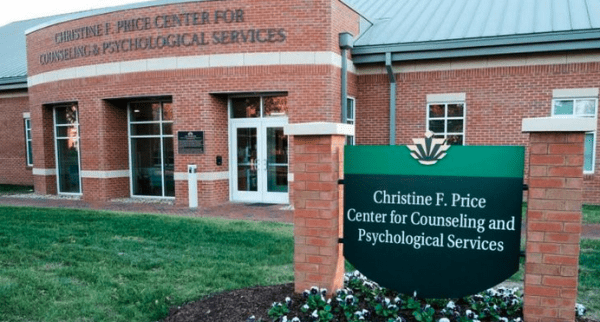UNC Charlotte Receives Grant to Develop Suicide Prevention Programs

UNC Charlotte will soon be able to build sustainable trauma-focused, resilience-oriented campus suicide prevention policies, programs and networks thanks to the three-year Garrett Lee Smith Campus Suicide Prevention grant from the Substance Abuse and Mental Health Services Administration (SAMHSA).
The grant totals about $300,000 over three years and will start on Sept. 30.
“This was a competitive grant process and it puts us among an elite group of universities who have been previously granted this honor,” said Dr. Paula M. Keeton, director of the Christine F. Price Center for Counseling and Psychological Services (CAPS).
The grant, which provides crucial support to university communities, will positively impact the lives of UNC Charlotte students in several ways.
First, it will strengthen the ability of campus faculty, staff and other personnel to respond to student mental health, stress and other concerns, according to Dr. Robert Cramer, associate professor and Irwin Belk Distinguished Scholar in Health Research in the Department of Public Health Sciences.
“We will deliver basic ‘gate-keeper’ training for many members of the UNC Charlotte community. These trainings provide skills for any person to capably recognize and respond to a student or other person in distress,” Cramer said. “We will enhance the already strong capacity of CAPS staff. We are designing new programs such as NinerResilient, which will culminate in specialized resilience skill building for graduate and international students after an in-depth needs assessment for these student groups. There are other ways the grant will benefit students, but these are some of the most prominent.”
Cramer and Keeton served as co-directors to lead the grant proposal process. Their proposal, “Implementing a Trauma-Informed Social-Ecological Approach to Campus Suicide Prevention at UNC Charlotte,” adopts a public health approach to suicide prevention among 30,000 college students.
It took a team of about 11 faculty and staff members to map out a three-year program, pull together numerous required documents and write a 10-page primary proposal. Representatives from CAPS, University Recreation, Center for Wellness Promotion, Student Assistance and Support Services, Veteran Services Office, University Police and several faculty members and doctoral students began planning as early as summer 2020 with initial discussions. The application was submitted in January 2021.
The grant will allow the following programs to be implemented:
-
Campus healthcare staff will receive advanced training in brief trauma-focused interventions and evidence-based suicide risk assessment and management practices.
-
Question, Persuade and Refer (QPR) training for suicide prevention will be vigorously expanded to strengthen certified campus trainers and reach key campus stakeholders such as law enforcement officers, faculty and military-affiliated students.
-
Health professions students will be offered an interprofessional education suicide prevention course.
-
A novel bystander intervention program for problematic drinking will be piloted.
-
A needs assessment will be conducted and Niner Resilient, an empowerment and social connectedness enhancement workshop for graduate and international students will be piloted.
-
CAPS will offer annual on-campus mental health screenings.
The grant has several goals across the three-year period. The first goal is to establish the campus strategic plan and campus-community referral network. Goal two will enhance QPR infrastructure by certifying seven more trainers and offering training to at least 600 students, staff, faculty and police officers. Goal three features training enhancement in advanced trauma-informed and suicide prevention skills for at least 20 campus health staff and 50 health professions students. Goal four will expose at least 50 students to a new bystander intervention program for problematic drinking. Goal five seeks to conduct a needs assessment of at least 50 graduate and international students, followed by resilience building and social connectedness programming for at least 50 such students. Goal six is to provide on-campus mental health screening for at least 150 students.
According to Cramer, the grant will extend beyond the UNC Charlotte campus community as well. Toward the end of the grant, a newly-formed campus-community referral network will allow advisors from the community to collaborate on a culminating strategic plan. Partners from organizations like Time Out Youth, Psychology For All and American Foundation for Suicide Prevention (North Carolina chapter) plan to join.
“Since my grad training, collegiate mental health has been a personal and professional passion. As a psychologist in public health, I also value making a larger scale impact on the local community, including campus,” Cramer said. “The grant offers a unique opportunity to work with a team of professionals all over campus, ranging from Student Affairs, Police and Public Safety, faculty and others. In this way, it’s a great opportunity to leverage our collective expertise to benefit UNC Charlotte and to generate knowledge and programs that will contribute to the broader science of suicide prevention.”